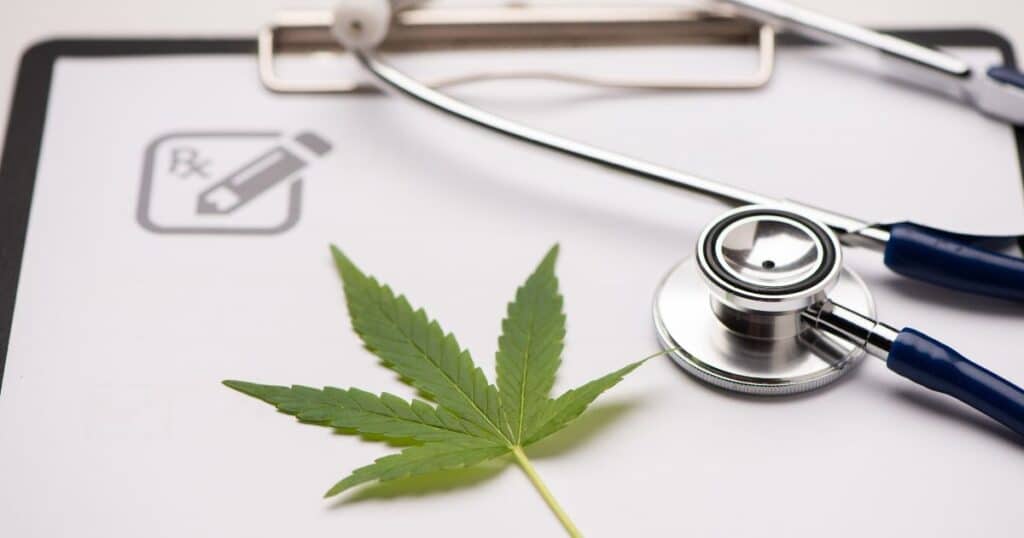The landscape of healthcare has been evolving significantly in recent years, with an increasing focus on alternative therapies and personalized medicine. One area that has garnered substantial interest and controversy is the realm of medical marijuana (MMJ).
Proponents have long touted its potential to enhance the quality of life for those facing various health challenges, while skeptics have raised concerns over its long-term safety and efficacy. However, a recent study brings to light compelling evidence that supports the former, showing that MMJ may indeed offer tangible and sustained improvements to the well-being of patients.

Findings of Medical Marijuana Study
Conducted by researchers from the Lake Erie College of Osteopathic Medicine and Ayr Wellness, Inc., the study published in Medical Cannabis and Cannabinoids enrolled patients authorized to use medical cannabis in Pennsylvania with the Pennsylvania Medical Marijuana Program (PAMMP). The aim was to gauge their physical and emotional health changes when utilizing medical marijuana.
Upon enrollment, participants reported symptoms and continued to do so at 30, 60, and 90-day intervals after commencing MMJ use. The results were insightful, showing immediate and lasting enhancements across different quality-of-life measures.
The findings revealed that patients who incorporated MMJ into their treatment regimens experienced swift enhancements in their general health. These effects were not merely short-term boosts; the improvements were sustained over the entire study period. Participants reported notable declines in emotional limitations, fatigue, and pain levels, which are hallmark symptoms that can significantly impede one’s enjoyment and engagement with everyday life.
“From 0 to 30 days, a significant improvement was observed in participants’ physical and social functioning, energy levels, and emotional well-being. Alternatively, a significant decrease was observed in participants’ emotional challenges and limitations along with pain levels”
“Furthermore, a significant increase in participants’ overall general health was observed between 30 and 60 days, and pain levels continued to significantly decline throughout this time period.”
The researchers highlighted that patients who were moderate in their MMJ use, consuming it once per day, experienced more significant gains in their overall well-being than those who used it more frequently. This nuance suggests that there may be an optimal dosage and frequency range for MMJ to confer the most benefits, emphasizing the need for personalized treatment protocols.
“The largest increase in general health was observed in those who consumed MMJ once a day compared to twice a day, 3–4 times a day, or 5 or more times a day, though more data are needed to confirm if this difference exists since the sample size of once a day users is small”
Product and Condition-Specific Effects
The study also illuminated the varied effects of different MMJ products and the conditions they aimed to address. Those who vaped or used concentrates, typically younger patients, reported substantial increases in their emotional well-being compared to individuals using dried cannabis flower products.
Furthermore, the research indicated that the nature of the underlying health condition influenced the therapeutic outcome. Patients who turned to MMJ for opioid use saw greater relief, with correspondingly higher THC intake, compared to those seeking treatment for anxiety, chronic pain, or inflammatory bowel disease.
Interestingly, alcohol use amongst the participants appeared to modulate the effects of MMJ, with dual users reporting lower energy levels and emotional well-being. This suggests a potential interaction that warrants further investigation to discern its implications for patients benefiting from MMJ.
In terms of administration, inhalation methods were commonly associated with positive outcomes, likely due to the faster onset of effects and the influence of THC, the primary psychoactive compound.
However, the study also noted the need to balance these benefits with the potential risks of inhalation, particularly in the long term. Careful consideration of delivery methods and their respective impacts on patients will be pivotal in optimizing MMJ therapy.
The most frequently reported side effects of MMJ echoed the well-known impacts, such as coughing, dry mouth, and increased appetite. While these are often minor and tolerable, they underscore the importance of educating patients and caregivers on managing the implications of MMJ consumption.
Love For The ECS
The outcomes of this study, revealing the profound impact of medical marijuana (MMJ) on patients’ well-being, resonate with the lived experiences of countless cannabis users worldwide. For years, both medical and recreational users have championed the substance’s ability to enhance quality of life, elevate mood, and alleviate chronic symptoms, echoing the findings of such research.
Central to these positive effects is the endocannabinoid system (ECS), a complex network in our bodies that plays a pivotal role in regulating various physiological processes, including pain, mood, appetite, and memory.
Despite widespread anecdotal evidence and emerging scientific research supporting cannabis’ beneficial impacts, the plant’s Schedule I status in many jurisdictions has severely limited scientific exploration into its effects and therapeutic potential.
This classification, denoting substances with “no currently accepted medical use and a high potential for abuse,” starkly contrasts with the experiences of millions who find solace in cannabis for conditions ranging broadly from chronic pain to anxiety, illustrating a significant disconnect between policy and reality.
Consequently, the potential for cannabis to interact with and support the ECS—a critical component of our bodily function—remains underexplored, hindering a deeper understanding and acceptance of cannabis as a tool for enhancing human health and well-being.

Overall, the findings of this study serve as a powerful affirmation of what many within the cannabis industry have long understood — cannabis aids a diverse range of individuals across various aspects of life. By illustrating the significant impacts of medical marijuana (MMJ) on the quality of life of its users, this research underscores the plant’s versatility as a therapeutic aid.
It echoes the anecdotes of countless individuals who have found relief and improved well-being through cannabis, thereby reinforcing the narrative that cannabis is more than just a substance; it’s a catalyst for healing and happiness in many people’s lives.
This study not only contributes to the growing body of evidence supporting the beneficial uses of cannabis but also highlights the urgent need for a more informed and open dialogue around its potential in modern healthcare and society.

















